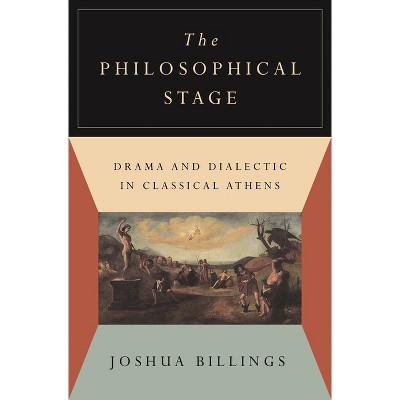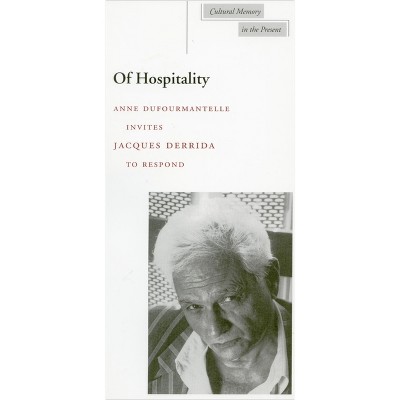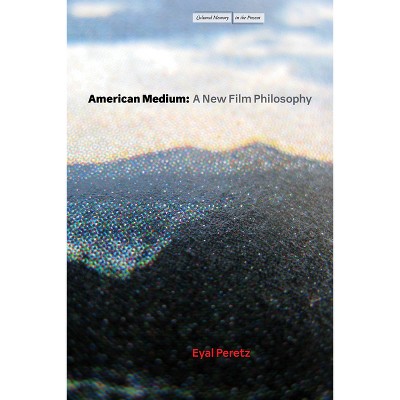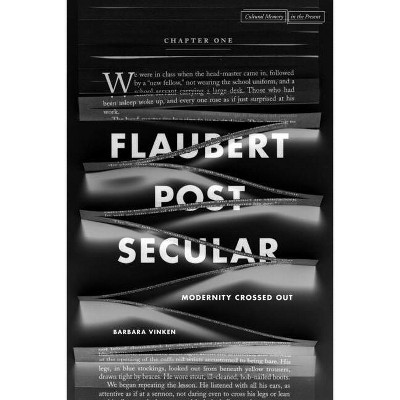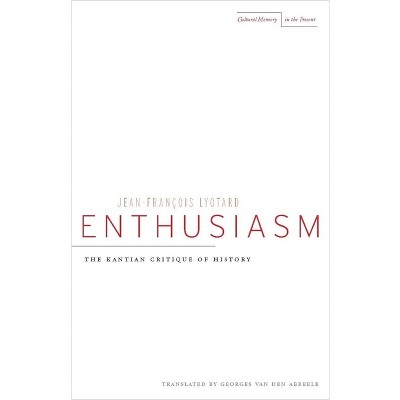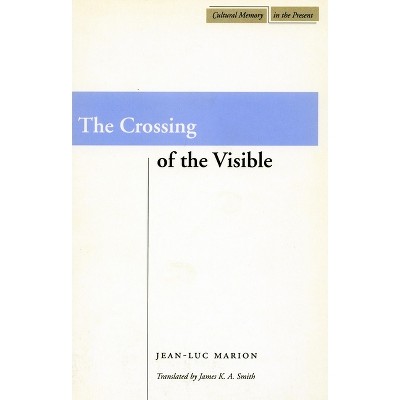Sponsored

True Materialism - (Cultural Memory in the Present) by Jensen Suther
In Stock
Sponsored
About this item
Highlights
- In recent years, there has been an explosion of interest in both Marxism and German Idealism across the humanities, but the discourse around the two traditions has grown stagnant and is still defined by the same century-old debates--materialism versus idealism, history versus logic, revolution versus reform.
- About the Author: Jensen Suther received his PhD from Yale University and is currently a Junior Fellow in the Harvard Society of Fellows.
- 404 Pages
- Philosophy, Ethics & Moral Philosophy
- Series Name: Cultural Memory in the Present
Description
About the Book
"In recent years, there has been an explosion of interest in both Marxism and German Idealism across the humanities, but the discourse around the two traditions has grown stagnant and is still defined by the same century-old debates - materialism versus idealism, history versus logic, revolution versus reform. With this exciting new work, Jensen Suther endeavors to transform this discourse by presenting an unprecedented systematic vision of the possibility of a Hegelian Marxism, grounded in Aristotle's logic of living form. Through engagement with three titans of literary modernism - Franz Kafka, Thomas Mann, and Samuel Beckett - Suther pursues not only an account of Hegel's materialism but also a new critique of capitalist modernity. Breaking with the received view of Marx's relation to German Idealism, the book argues that the materialist critique of capitalist production is inseparable from Hegel's idea that the demand for freedom is a demand for mutual recognition. The implication for Marxist criticism is that literary works cannot be understood apart from the political struggle for both recognition and new forms of social production. Anyone invested in socialist politics, the future of literary theory, the history of philosophy, and the study of modernism will want to contend with the way Suther rethinks Marxist theory and literary criticism from the ground up, starting with their foundations in Hegelian thought"--Book Synopsis
In recent years, there has been an explosion of interest in both Marxism and German Idealism across the humanities, but the discourse around the two traditions has grown stagnant and is still defined by the same century-old debates--materialism versus idealism, history versus logic, revolution versus reform. With this exciting new work, Jensen Suther endeavors to transform this discourse by presenting an unprecedented systematic vision of the possibility of a Hegelian Marxism, grounded in Aristotle's logic of living form. Through engagement with three titans of literary modernism--Franz Kafka, Thomas Mann, and Samuel Beckett--Suther pursues not only an account of Hegel's materialism but also a new critique of capitalist modernity. Breaking with the received view of Marx's relation to German Idealism, the book argues that the materialist critique of capitalist production is inseparable from Hegel's idea that the demand for freedom is a demand for mutual recognition. The implication for Marxist criticism is that literary works cannot be understood apart from the political struggle for both recognition and new forms of social production. Anyone invested in socialist politics, the future of literary theory, the history of philosophy, and the study of modernism will want to contend with the way Suther rethinks Marxist theory and literary criticism from the ground up, starting with their foundations in Hegelian thought.
Review Quotes
"The most ambitious attempt to defend Marxist literary criticism by systematically elaborating what it should be since Fredric Jameson's The Political Unconscious." --Christopher Gortmaker, Critical Inquiry
"Fearlessly reclaiming a humanist and Hegelian Marx, Jensen Suther's exhilarating book reactivates the concept of 'bio-aesthetics' for literary criticism today. Concepts and practices we have grown used to seeing as opposites--embodiment and reason, historical materialism and the autonomy of artworks--are subsequently re-thought together in politically exciting ways. This is an almost endlessly rich and rewarding text." --Sianne Ngai, University of Chicago
"In his brilliant and spectacular debut, Jensen Suther explores how some of the greatest modernist artworks are not merely hostages to capitalism or refuges from its depredations. They dramatize and even take part in our embattled attempt to confer narrative unity on our lives." --Samuel Moyn, Yale University
"In stunningly argued text, Suther claims that it is partly through the work of art that we collectively form ourselves as a certain kind of historical community. The unlikely source of Suther's compelling philosophy of art and literature is a tour de force reconstruction of Hegelian-Marxism from a revised Aristotelian reading of Hegel's Logic. This is an aesthetic theory for our time." --J.M. Bernstein, New School for Social Research
"This is a deeply intelligent and strikingly original book. The erudition on which it is based is world-class, extremely impressive, and the position defended is bold, fresh, and bound to attract a great deal of attention." --Robert Pippin, University of Chicago
About the Author
Jensen Suther received his PhD from Yale University and is currently a Junior Fellow in the Harvard Society of Fellows.Shipping details
Return details
Frequently bought together




Trending Philosophy







